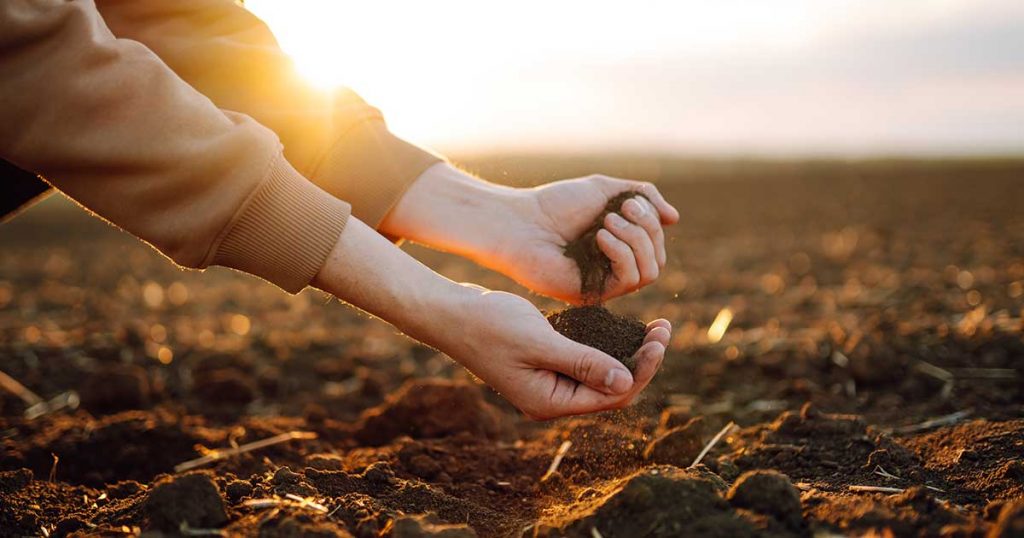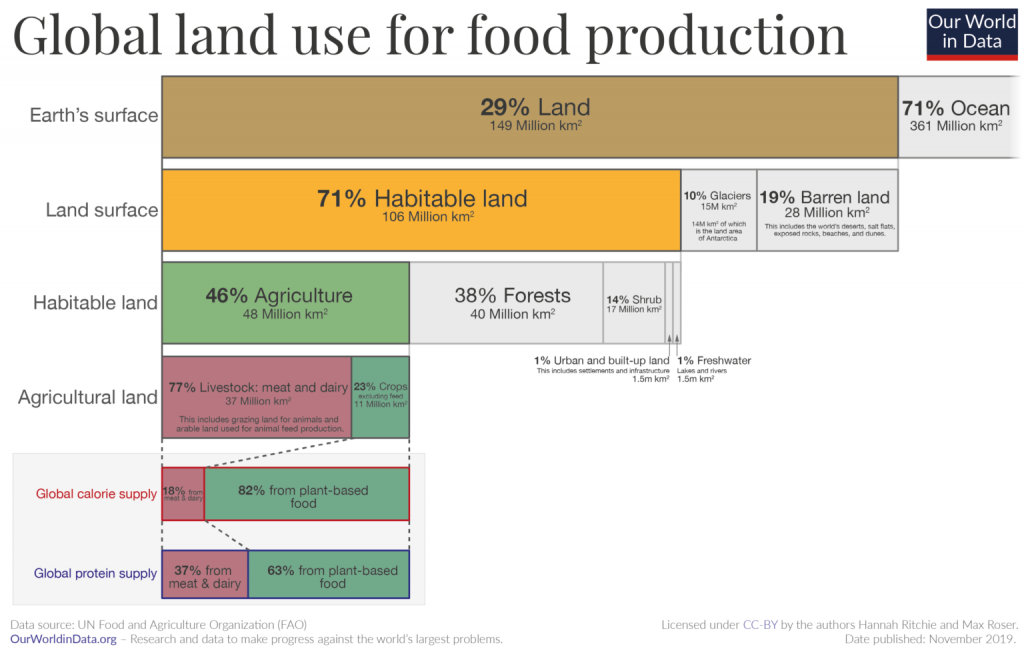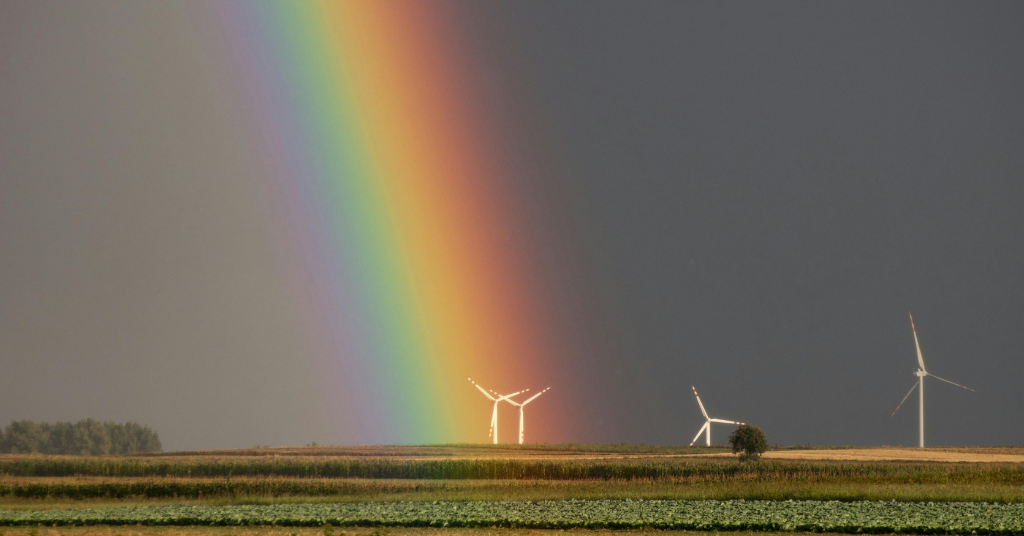To understand why soil is important to us, first, we need to look into both the phenomenon and its significance in Europe. Eurostat, the European Statistical Office, reported that in 2016, over 80 % of all areas in the EU-27 estimated to be affected by moderate to severe soil erosion were agricultural areas and natural grassland. Soil, however, is a vital carbon pool, containing a considerable amount of CO2: two or even three times more than the atmosphere.
If we look at the figures above, we must note how much of all habitable land is directly impacted by our activities and how badly we use it.
Kiss the ground
Many great things come from the other side of the pond, and two years ago, filmmakers introduced a movie, Kiss The Ground, that explains how tillage has ruined the soil of and, in general, the majestic landscapes of the United States. The good news is that the crew has found the pioneers who are ready to share their thoughts that may help nations all around the globe to stop or mitigate the effects of the climate crisis – experts say that regenerative farming practices and carbon sequestration enhances the quality of soil that can eventually be healed and absorb CO2, stop desertification and decrease poverty in the long run
Knowing that regenerative farming was partly a part of the past when chemicals didn’t help maximize yields, decreasing profit might be a concern for many. It’s also a significant question in Europe: the EU’s agricultural industry created an estimated gross value added of EUR 189.4 billion in 2021, a figure that also needs to be considered when considering topsoil regeneration.
One of the key findings of the film is that American farmers make $0.10-3.00/acre. In comparison, regenerative farming may increase to as high as $100/acre, having diversified crops and healthier soil.





